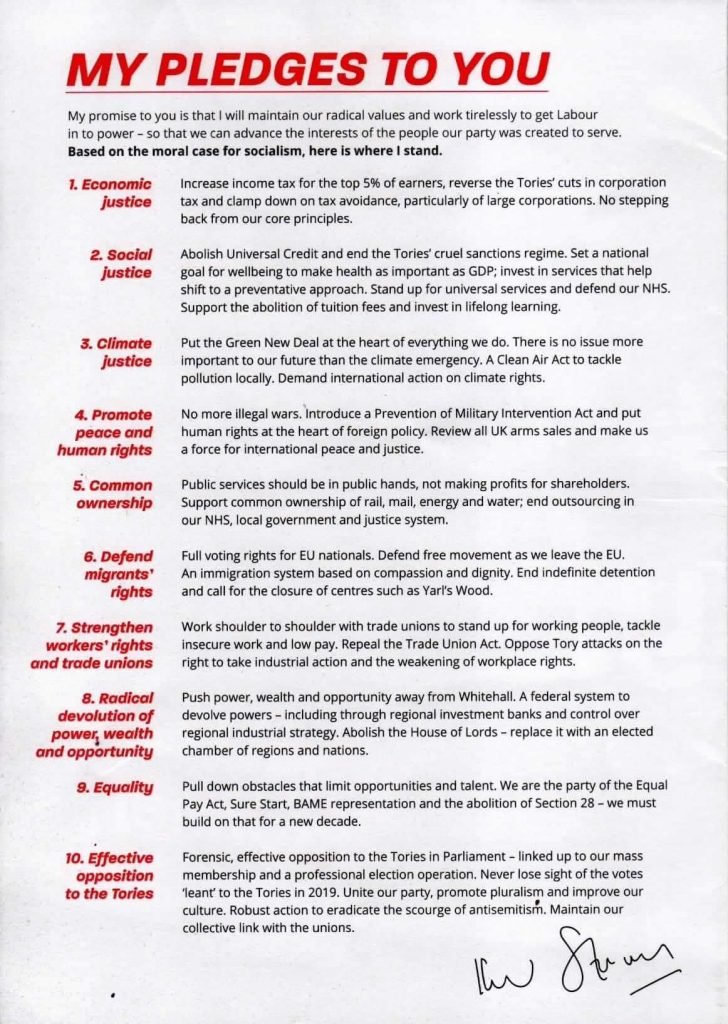Broken Promises: How Election Pledges Contribute To Budget Deficits

Table of Contents
The Allure of Popular but Costly Promises
Politicians often face a difficult choice: prioritize fiscal responsibility or pursue popular policies that may be fiscally unsustainable. The inherent incentive structure of electoral politics often favors the latter. Grand promises, such as significant tax cuts without corresponding revenue increases or expansive social programs without clearly defined funding mechanisms, resonate deeply with voters. This creates a powerful temptation to offer attractive, yet potentially ruinous, pledges.
- Politicians prioritize short-term electoral gain over long-term fiscal responsibility. Winning the next election frequently overshadows the long-term consequences of unsustainable spending commitments.
- Lack of transparency regarding the true cost of election pledges. Vague or misleading promises often mask the full financial implications, making it difficult for voters to make informed choices.
- The role of media in amplifying unrealistic promises. Media outlets, in their pursuit of captivating narratives, sometimes fail to adequately scrutinize the fiscal feasibility of political pledges, unintentionally contributing to the problem. Sensational headlines often overshadow in-depth analysis of budgetary impacts.
Underestimation of Costs and Unforeseen Expenses
Initial cost estimations for election pledges are frequently flawed. These estimations often underestimate the true financial burden, relying on optimistic assumptions and overlooking potential complications. Unforeseen circumstances, such as economic downturns or unexpected surges in demand for promised services, can dramatically inflate the actual cost.
- Inadequate cost-benefit analysis before making promises. Many pledges are made without rigorous analysis of their long-term cost implications and potential trade-offs.
- Failure to account for inflation and economic fluctuations. Projecting costs over several years requires accounting for inflation and potential economic downturns, factors frequently neglected in the initial stages of policy formulation.
- Unexpected increases in demand for services or programs. A newly implemented program may attract significantly more beneficiaries than initially projected, leading to unexpected cost overruns.
Lack of Funding Mechanisms and Prioritization
Securing sustainable funding for election pledges is often a significant challenge. Many promises lack concrete funding mechanisms, leaving a gaping hole in the budget. Furthermore, competing priorities inevitably arise, forcing difficult choices and potentially leading to cuts in other essential areas.
- Insufficient revenue generation to cover new spending commitments. Tax cuts without offsetting measures create budget shortfalls, forcing reliance on borrowing or cuts to other programs.
- Increased reliance on borrowing and debt accumulation. To fund unfunded mandates, governments often resort to increased borrowing, leading to a spiraling national debt.
- Cuts to existing programs or services to accommodate new pledges. Prioritizing new initiatives often necessitates cuts to existing programs, potentially impacting essential services like education, healthcare, or infrastructure.
The Impact on Long-Term Fiscal Stability
The cumulative effect of unfunded election pledges is a significant increase in budget deficits, leading to a precarious long-term fiscal outlook. This has severe consequences for the economy and the nation's creditworthiness.
- Increased national debt and interest payments. Higher debt levels lead to increased interest payments, consuming a larger portion of the budget and leaving less for essential services.
- Reduced government capacity to invest in crucial areas like infrastructure and education. Budget constraints limit investment in critical areas that drive long-term economic growth and societal well-being.
- Potential for economic instability and reduced investor confidence. High levels of national debt can erode investor confidence, potentially leading to economic instability and higher borrowing costs.
Holding Politicians Accountable for Broken Promises
To mitigate the detrimental effects of broken promises, we must enhance transparency and accountability. Voters need the tools to assess the true fiscal implications of political pledges before casting their ballots.
- Independent audits of campaign promises and their cost implications. Independent bodies could audit campaign promises to provide voters with unbiased assessments of their financial implications.
- Enhanced public access to government budgets and financial data. Making budgetary information readily accessible to the public fosters greater transparency and accountability.
- Increased voter awareness and engagement in fiscal policy issues. Informed voters are more likely to demand fiscal responsibility from their elected officials.
Conclusion:
Broken election promises significantly contribute to budget deficits, creating a cycle of unsustainable spending and increased national debt. The long-term consequences are dire, impacting economic growth, essential services, and future generations. By understanding the connection between broken promises and budget deficits, we can demand more responsible fiscal policy from our elected officials and actively participate in shaping a financially sustainable future. Evaluating election pledges critically, understanding the budget impacts of various proposals, and advocating for responsible fiscal policy are crucial steps towards a healthier financial future.

Featured Posts
-
 Ashton Jeanty A High Price Gamble For The Chiefs Running Game
Apr 25, 2025
Ashton Jeanty A High Price Gamble For The Chiefs Running Game
Apr 25, 2025 -
 Bota De Oro 2024 25 Clasificacion Actual Y Aspirantes
Apr 25, 2025
Bota De Oro 2024 25 Clasificacion Actual Y Aspirantes
Apr 25, 2025 -
 2025s Surprise Rpg Hit The Star Studded Cast Revealed
Apr 25, 2025
2025s Surprise Rpg Hit The Star Studded Cast Revealed
Apr 25, 2025 -
 Plan Your Perfect Spring Break Okc Parks And Recreation
Apr 25, 2025
Plan Your Perfect Spring Break Okc Parks And Recreation
Apr 25, 2025 -
 Import Tariffs A Montreal Guitarists Supply Chain Nightmare
Apr 25, 2025
Import Tariffs A Montreal Guitarists Supply Chain Nightmare
Apr 25, 2025
Latest Posts
-
 Former Becker Sentencing Judge Heads Nottingham Attack Investigation
May 10, 2025
Former Becker Sentencing Judge Heads Nottingham Attack Investigation
May 10, 2025 -
 Former Becker Jailer To Chair Nottingham Attacks Investigation
May 10, 2025
Former Becker Jailer To Chair Nottingham Attacks Investigation
May 10, 2025 -
 Valdo Calocanes Victim A Survivors Unwavering Grief And Plea
May 10, 2025
Valdo Calocanes Victim A Survivors Unwavering Grief And Plea
May 10, 2025 -
 Nottingham Tragedy Survivors Emotional Account Of Triple Killing
May 10, 2025
Nottingham Tragedy Survivors Emotional Account Of Triple Killing
May 10, 2025 -
 Nottingham Attack Survivor Speaks Out I Wish He D Taken Me Instead
May 10, 2025
Nottingham Attack Survivor Speaks Out I Wish He D Taken Me Instead
May 10, 2025
